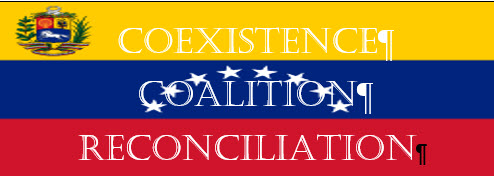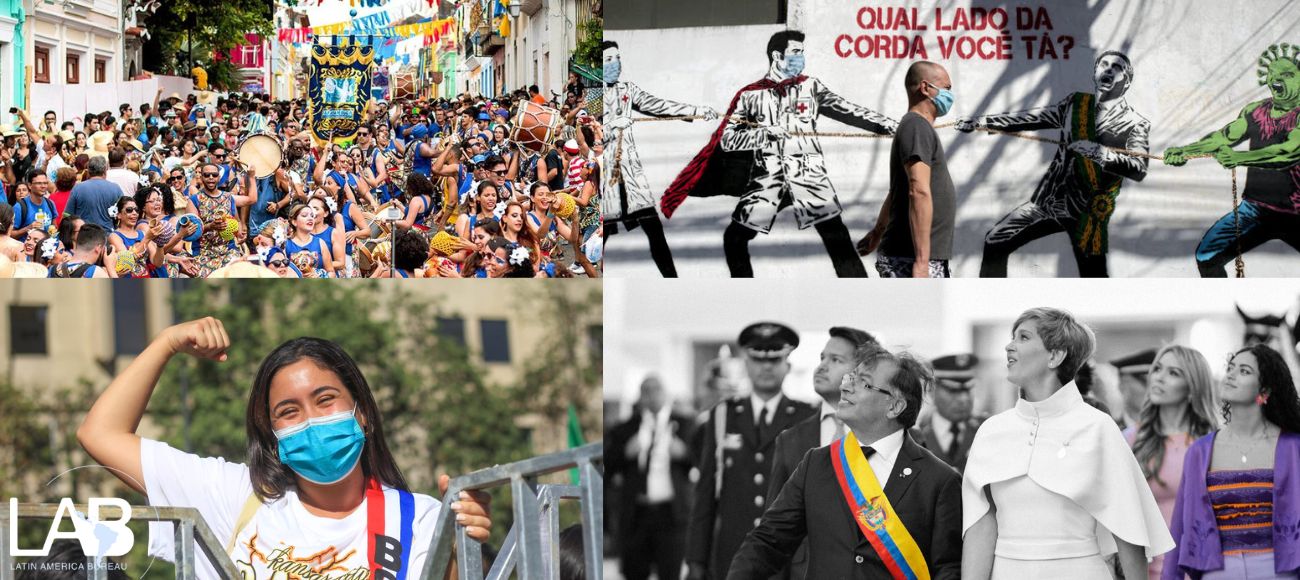- This article is based on a letter submitted in February 2019 to the European Commission and to the International Committee of the Red Cross.
- The author is Victor Álvarez R., a Venezuelan economist and winner of the Premio Nacional de Ciencia 2013. He was Minister of Basic Industries and Mining during the Chavez presidency
- The English translation has been revised by Mike Gatehouse for LAB.
The political elites in Venezuela are committed to mutual extermination, for better or worse. The extremists at both sides await the grand final battle, hoping to defeat and impose a humiliating and unconditional surrender on the adversary. With such obdurate positions, they may unleash a wave of violence in a spiral of hatred and lust for revenge, which may later be difficult to extinguish.
From humanitarian emergency to humanitarian catastrophe
Nicolás Maduro’s government does not accept the operation to deliver humanitarian aid and has given orders not to allow it to enter the country. If it does enter, it may prove totally counterproductive. What will be the reaction of the National Bolivarian Armed Forces (FANB) when such an operation enters Venezuelan territory? Will they repress or support it? Will they be loyal to Maduro or close ranks with Guaidó? Will they remain a single, united military force or will there be defections among the various units? Will the people support the aid operation?
A parallel army is being formed on the borders with Colombia and Brazil, made up of mercenaries, paramilitaries and deserters from the Venezuelan Army (FANB). Its mission is to call upon soldiers to allow the aid caravan in. What will happen if the FANB refuses? If they finally allow it to proceed, will this guarantee a peaceful country? In Venezuela there are hundreds of armed groups and paramilitaries as well as some factions of the Colombian ELN guerillas and dissident groups of the FARC which operate in the country. How will these various armed groups respond? Will they become a subversive force capable of destabilizing the new government?
Humanitarian aid cannot be used as a pretext to force a confrontation with the armed forces. If the aid operation enters Venezuela, without this being previously agreed with the Maduro government, its entrance would be an act of recklessness, an extreme provocation against the government. If the Venezuelan army attacks the aid caravan, its action would serve as a pretext to justify to international public opinion a subsequent military invasion.
However, this invasion may not turn out to be as surgical an operation as has been claimed. The excesses which would be committed would plunge Venezuela into a situation of mounting violence, to the point where a civil war would break out and the situation would move from humanitarian emergency to a real humanitarian catastrophe. Furthermore, migration for economic reasons would be easily surpassed by the diaspora of people fleeing en masse from the horrors of violence and war.
To put additional strain on the internal conflict with a humanitarian aid operation, poses a formidable challenge for a government that is cornered, will not act lucid and intelligently, and that may deploy savage repression, as it has previously shown that it can do. If the only option offered to Maduro is between choosing the country where he can go into exile or life imprisonment in Guantanamo, he will prefer to stay put on the brink of war. Given that alternative, he will prefer the narrative of a foreign invasion, which will turn him into a ‘martyr of imperialist aggression’. If Maduro and the highest military command are not offered a viable and acceptable way out, a violent confrontation could take place.
This, however, does not mean impunity. In fact, a peaceful transition implies some coexistence between the old and the new, and this means granting some temporary concessions to the ruling elite to be open to the idea of a coalition government under which they would not be persecuted. Once the powers of state are reconstituted, including the Supreme Court (TSJ) and the entire Judiciary, justice will be activated so that in the long term no crime, whichever side committed it, will remain unpunished. This long wait will be less traumatic for society than the cost in human lives, injuries, disappearances and displacement, as well as the flood of refugees which are the consequence of prolonged war and violence.
We must insist on a political solution so the country can be at peace and can recover rapidly its governability. The great task for international mediation is to prevent the obstinacy of political elites, which are looking for mutual destruction, from causing a civil war, drowning the people’s hope in blood and putting at risk the integrity of the nation state.
The alternative of a coalition government
The solution to the crisis of governability in Venezuela is not ‘You resign so that I can take over’, but the peaceful coexistence and cohabitation in government of the forces which are now in conflict.
Such a coalition government cannot contain Maduro and his gang, and it cannot be headed by a Chavista. That would be politically and psychologically non-viable because the majority of the country does not want Maduro and would not accept his presence in a coalition government. Moreover, the country is not divided into two equal parts. If the correlation of forces is about 60-40, hardline Chavismo has been reduced to no more than 25 per cent, but a good part of those are armed. So they cannot be underestimated as a political force – instead they must be disarmed and pacified.
To avoid the witch-hunt which would plunge the country into war and a spiral of violence, it is essential to recognize Chavismo as a political force so long as it still controls governments, mayors, regional legislatures, municipal councils, and maintains its strong influence in the armed forces. So, before persecuting it and pushing it irrevocably into opposition or armed resistance, it is preferable to obtain its support and then evaluate its role in the transition phase. That is possible if its presence as a political actor is recognized, it is guaranteed its political rights and it is given space within national political life. In this way, the political and social force of Chavismo, instead of simply opposing and sabotaging the new government from the outset, would form a part of the transition and support the actions of a Coalition Government, whose mission, during the period of transition, would be to apply economic reforms and re-institutionalize the country. This would make it possible to call clean and transparent elections, so that those elected would inherit a healthy economy, restored powers of state and a country at peace capable of being governed.
If we want different results, we need to do things differently. Instead of tightening economic and financial sanctions, which affects ordinary people, international mediation can provide incentives to establish a coalition government, which could be supported by the European Union (EU) and the International Committee of the Red Cross (ICRC). Furthermore, to offer economic and financial incentives in exchange for commitments to restore the economy and democratize the country would be more far more effective than simply tightening up sanctions. Incentives to establish a coalition government should include the lifting of international financial sanctions, provision of foreign investment, re-financing of foreign debt, fresh international financing and humanitarian assistance.
The EU and the ICRC could offer a credible proposal to the government and the opposition, provided that incentives are exchanged for: creating a government of coalition dedicated to apply the necessary economic reforms; restoring the functions of the National Assembly; approving a legal framework to guarantee legal security and property rights; releasing political prisoners; legalizing political parties; renewing the electoral power to guarantee fair and transparent elections with international oversight of the entire electoral process; new parliamentary elections in 2020 and presidential elections in December 2021; and guaranteeing the political rights to the parties which lose the elections.
Once this process is complied, the winner will receive a restored economy and a peaceful country to govern. National reconciliation is essential for the peace. There is no governability without peace.
@victoralvarezr


